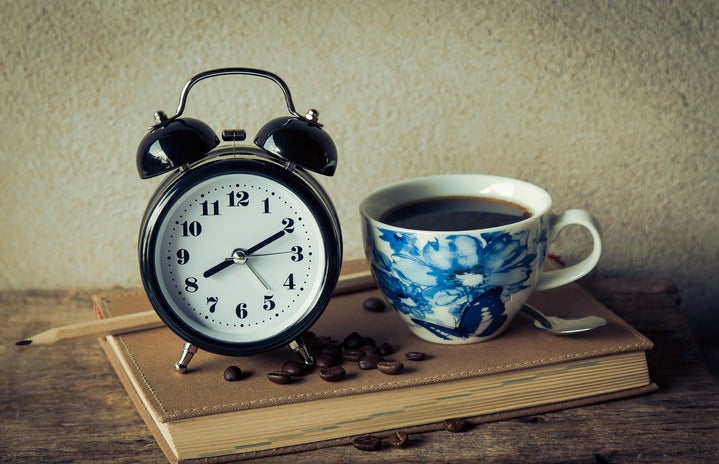By Alizah Ali
It’s midterm season again, and with that, anxiety season.
A common symptom of anxiety is insomnia. I won’t get into the details, but with anxiety, everything in your body is in overdrive. You physically are not able to calm down, due to chemical imbalances. Thus, at night, it’s hard to shut off and go to sleep. The smallest stimulus wakes you up, and you have to repeat that sleep ritual again.
Lying awake staring at the ceiling or the wall isn’t the best option, though. Here are some tips to get you to sleep, that have been tried and done before:
1. Try to keep your room for just sleeping and unwinding.
I stopped studying and staying in my room during the day. If you knock on my door between 9AM and 10PM, I’m not there. Why? Because my room is just four walls to sleep in. Nothing else but a place to dump my stuff and sleep.
2. Some teas help you sleep.
There’s chamomile, which is found in the majority of night-time teas. I found that peppermint worked for me, and decaffeinated green tea.
3. Speaking of decaffeinated, try not to have any coffee (or anything heavily caffeinated) in the afternoon.
Caffeine can have effects in your body for up to 14 hours, which can affect your sleep schedule at night.
4. Develop a night routine.
This can be anything really. Right now, my night routine is taking my supplements, looking through Flipboard for a couple of minutes and then shutting off the lights. It’s simple, but it kind of tells your mind that, hey, it’s time to turn off.
Preventive stuff is great and all, but what exactly do you do when insomnia comes? There’s a point when you’ve been staring at the wall for over two hours and you start to hate your body for not being able to sleep. Here are some pointers to get you to sleep:
1. If it’s been over 30 minutes, get up, drink a glass of water or something that requires a short walk away from your bed.
Try not to check your phone during this time, since that will just increase anxiety (especially if you have an early morning class or exam).
2. Try melatonin.
It’s a natural supplement, thus a lot better than taking something like Zzzquil (which I recommend as a last resort). It doesn’t induce dependency; however you may get a tolerance for it and have to take larger doses in the future, which can be detrimental.
3. Yoga breaths help.
It helps to lie on your back and just focus on your breathing for about ten minutes, and then resume your normal sleeping position.
4. Grab a book.
I normally take one of my throw blankets, a book, and some water and head out into the dorm/not-dorm hall (it’s around 3 AM, so no one’s really there). I’ve, on occasion, passed out reading outside, because for some reason the fluorescent lights help. Or maybe it’s the change of room. Changing rooms actually helps a lot. If this doesn’t work, I normally head out again with something new, like a notebook so I can write (I started writing letters to people, and it was very therapeutic to write those words you really want to say to someone in the middle of the night but can’t).
5. All of this has at one time or another completely failed me.
However, grabbing your cell biology textbook, or whatever really reading intensive course book you have always, always works. I can almost guarantee that you’ll be asleep in an hour, tops.
And if all else fails, it’s probably 6 AM, so grab some coffee and consider it an all-nighter.


